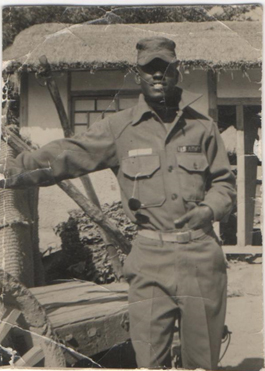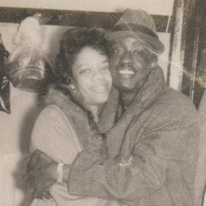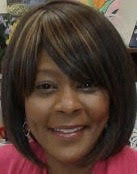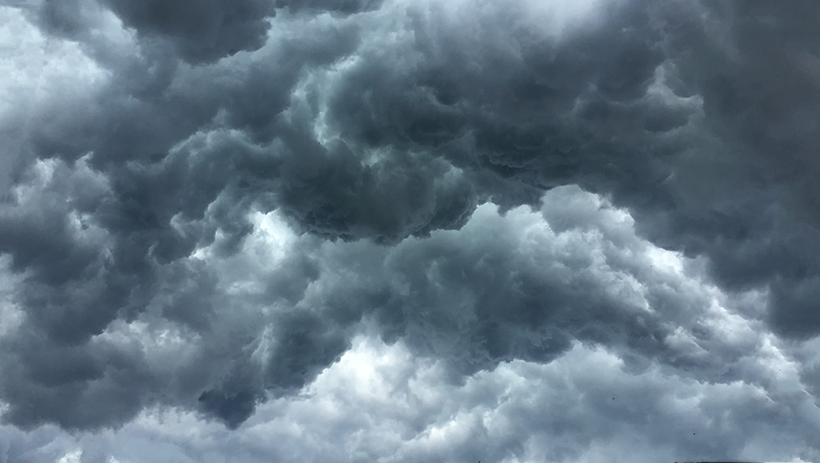This post was written by NCTE member Jennifer Howard.

History is the best teacher that I know. I truly believe that understanding history is crucial to human survival. I have also come to the conclusion that the lessons of my history prepared me to teach in a very unique way. It is only now 25 years after I first set foot in a classroom that I realize how I was intentionally prepared to teach, especially in the midst of storms. Since others of my generation may be able to relate, but reluctant to write, I am compelled to document my story, thus curating a small slice of all of our lives.
My father was born in the south in 1936. He was a proud Black man who grew up under the sting of a violently oppressive political system, yet who harbored an undying trust not in America’s notion of justice but in the idea (expressed in an aphorism used by Dr. Martin Luther King Jr.) that the arc of the moral universe is long, but eventually bends toward justice.
Through many conversations, using the political events of 1968–1980 as a framework, he introduced me to my America, warning that I was to always respect democratic ideals but never to forget the bloodshed and suffering that had earned me the right to sit at the table of American possibilities.
He required that I understand the complexities of “the system” but never completely give up. In so doing he inoculated me with cautious hope and fed me a steady diet of honor for all humans. He took his fatherhood seriously, and in this way, ingrained within me valuable lessons.
I was born in 1962 so my personal history intersects American history. I have a keen sense that turbulent times demand an answer. As threats to public education grow daily, I see clearly why my voice plays a crucial role in the chorus of truth that these times need.
I am a person of color who teaches children of color in a public school. Racism and the violence of injustice are not unfamiliar to me. America’s dark history plays out before me daily in the inequitable iniquities done to our children. It is hard to watch but I see it. I see it.
Being my father’s daughter, my mother’s child, and a child of God, at some point in my career I decided not to succumb to my surroundings but to teach through the storms of what I see. This is not easy but is very necessary.
Sociopolitical storms can create a singular and dynamic focus in a teacher. They create the climate for fearless teaching.
Public schools play an important role in this uneasy democratic experiment that we call America. Public schools are where we first come together to learn with and from each other as a citizenry. As a first-grade teacher I know that the seeds of life’s wisdom are often planted early and that these can have long-lasting effects. I am a daily eyewitness to how everything from our sense of the beauty and wonder of the world around us to our notions of boundaries of right and wrong are molded.
We learn to laugh, love, fight, and make friendships in school. We also learn to be kind to others. And at my school, every day like clockwork, at the end of the day, parents still ask, “Miss Howard, was he (or she) good today?” Parents all want to know that their children can make good decisions based on their developing good judgment.
And in class, during those quiet moments when our minds are pregnant with thought after a good discussion, I realize that my father’s influence is in the room, pushing me to push my students toward becoming. They must be the ones to change the world for the better.
I think that I was intentionally prepared to teach because oppression is a tangible point of reference in my history. Life’s challenges are viewed differently when approached from the vantage point of injustice. Unfair experiences coupled with the social assumption of inferiority tend to make you take life more seriously and train you to consistently reconstruct the beams of your “thinking life” with the storms in mind. (And if you listen closely to the whispers in the howling of the storm, they echo warnings for you not to become the oppressors that you once despised.)
Likewise, you can become more sensitive to the plight of others, if you open your heart. A few months ago I read Elie Wiesel’s book Night. I cannot explain to you the impact of his words. No human should ever have to endure his concentration camp experiences. But all through the book he is teaching. He teaches us what it means to have nothing but your thoughts and still to be rich; he teaches us that humans can and do do horrible things that no one would believe, and that this should always be remembered.
Could it be that teaching through the current political storm is somehow tied to fulfilling the moral mandate placed upon our noble calling? Difficult as it may be to accept, we are living on the front lines of social transformation and economic tumult . . . we shouldn’t expect it to feel good.
As I listen to various fears and concerns in education I wonder, “When in this country has change ever been easy, or safe or pretty? What economic lesson plans did the Great Depression leave us? And what did we learn about moral imperatives from WWII?
Why are we surprised when we have to fight for justice? Didn’t the Civil Rights movement explain the necessity of social justice? Have we been listening to the lessons of history—everyone’s history?

Now, when I look back on all those conversations that my father and I had, I know that he was really showing me what this world looked like through the lens of his experiences and the hopes within his heart. He was grooming me to simultaneously survive the challenges that my America would offer and never to forget that it is my responsibility to change it.

Jennifer Howard is a first-grade teacher with the Poughkeepsie City School District, Poughkeepsie, NY, where she has taught for 25 years. She is active in many facets of her school and recently completed the year-long Hudson Valley Writing Project’s Institute at the State University of New York at New Paltz. Email: Citizenoftheworld762@gmail.com.

